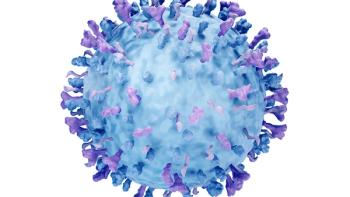
- BioPharm International, August 2023
- Volume 36
- Issue 8
- Pages: 28–31
Staffing Shortages: Major Hurdle for Bioprocess Contract Manufacturing Services in 2023
More than a third of CMOs are struggling to keep skilled technical and production staff.
The inability to hire new, experienced technical and production staff will be a major constraint on biopharmaceutical manufacturing capacity over the next five years (by 2028) for 35% of all bioprocessing respondents to BioPlan Associates’ 20th Annual Report and Survey of Biopharmaceutical Manufacturing Capacity and Production in 2023 (1), including biologics innovators and contract development and manufacturing organizations (CDMOs). BioPlan’s report shows this bottleneck has grown steadily over the past five years, up from 28.1% in 2018 (Figure 1). These challenges in hiring are often creating serious problems among CDMOs, because these outsourcing service providers typically work on multiple projects and often require experienced staff with unique skills.
Additionally, 31.6% of all respondents identified the inability to hire new, experienced scientific staff as a factor creating future capacity constraints over the next five years, up from 19.4% in 2018. This bottleneck around scientific staff can involve areas such as process development, where having the right people available to scale-up a process is crucial.
Filling bioprocess scientific and operational positions has been a challenge. “Process development staff, upstream” is chronically challenging to fill. This was the top area in the 2023 survey, with 42.8% of respondents identifying it as the most difficult position to fill. “Process development staff, downstream” is second, with 42.2% of respondents, which is most likely an indicator that advances in both upstream and downstream processing have outstripped the industry’s ability to find qualified technicians to handle them. This has been the trend at least since 2011 when BioPlan began collecting these data.
Staffing issues seem to be growing with the growth trends seen across the industry. As the industry continues to grow, the value of experienced staff increases, as does the demand for these individuals. The industry has also felt the effect of a lack of experienced staff and an increase in capacity constraints, particularly in contract manufacturing organizations (CMOs).
Growing demand and staff shortage
The growth of the bioprocessing segment is being stunted by a lack of qualified manufacturing staff. Regarding the impact of COVID-19 on the supply chain and hiring, end-users predict an 18% increase in hiring to meet the demand in 2023 and beyond (2). Further, 50% of respondents indicate “Hiring Urgency” as serious (a 9 or 10 on a scale of 1–10). On average, the Hiring Urgency score was a 7.2, indicating that facilities will continue to staff-up in the coming years. Adding staff in this segment is a strategic growth initiative that is generally considered a leading indicator of future demand. This industry is growing rapidly, but without the right staff, progress will come to a standstill.
Overall demand for bioprocess supplies remains strong, and growth is anticipated in both established and emerging segments with new therapeutics on the horizon.
CMO capacity bottleneck projections, in retrospect
CMOs are now more worried about hiring and retaining skilled staff than biomanufacturers. This is a shift from previous years, and CMOs are even more concerned about retaining experienced technical and production staff than optimizing their overall systems. Staff shortages are a growing industry-wide problem for both biomanufacturers and CMOs.
Some prior years’ findings include:
- CMOs–in 2022: CMOs were more concerned about facility constraints and costs associated with downstream purification than biomanufacturers.
- CMOs–in 2021: CMOs were more concerned about facility constraints and more about staffing than biotherapeutic developers.
- CMOs–in 2019: CMOs continued to be concerned with facility constraints (54.6% vs. 51.9% biotherapeutic developers) and an inability to retain experienced scientific staff (45.5% vs. 17.3% for biotherapeutic developers).
- CMOs–in 2017: CMOs were concerned with facility constraints (83.3% vs. 58.8% for developers) and an inability to hire new, experienced technical and production staff (66.7% vs. 30.7% for developers).
How staffing is affecting capacity constraints
The biopharmaceutical industry has seen significant growth over the past 20 years. That growth is likely to continue, with an expected 2000 products currently in the development pipeline, compared to around 1000 in development five years ago. However, this rapid growth has also led to a shortage of experienced staff, with it taking one to two years to train someone to excel in this highly specialized industry. This has put pressure on the number of available employees per organization, especially in CMOs, leading to capacity constraints. To alleviate these constraints, the biopharmaceutical industry is trying new approaches, such as implementing automation solutions for better productivity and efficiency.
Automation is increasingly seen as a potential solution for bottlenecks and addressing the shortage of experienced staff, particularly in CMOs. The use of automation is growing rapidly, as highlighted by respondents in the 2023 survey, particularly over the past three years. As technology progresses, automation could reduce reliance on expert staff and potentially alleviate capacity constraints in manufacturing facilities. Some areas where automation is advancing include technology areas in the 2022 survey, and nearly a third of all respondents still indicated a high interest in “planning to implement” these areas in the next 12 months, including:
- Automation of continuous processing (41.5%)
- Automation of purification/downstream processing (31.6%)
- Automation of upstream processing (other than bioreactors) (31.1%)
- Automation of fill/finish (29.5%)
- Automated batch control systems for bioreactors (28%).
Factors creating capacity constraints: US vs. Western Europe
In 2023, “Inability to hire new, experienced technical and production staff” was a top factor for US survey respondents, with 40.2% vs. 37.9% for Europe. In 2022, European respondents were not quite as concerned: 40.7% of US vs 31.8% of European respondents. However, European respondents also saw “Inability to hire new, experienced scientific staff” as one of the top concerns with 44.8% expressing concerns in this area, vs. 30.4% of US respondents (Figure 2).
Hiring, employment growth, and training
The biopharmaceutical manufacturing industry is facing a bottleneck due to the difficulty of finding, training, and retaining skilled staff, leading to unmet market demand even during economic downturns. Despite the availability of training programs, there is a lack of industry-recognized certifications and standardized curricula for bioprocessing. This means that graduates may not be adequately prepared for the challenges of working in a manufacturing environment. Community college programs are helping to address the shortage of entry-level technicians, but more master’s and doctoral programs in bioprocessing will be needed in the future.
The COVID-19 pandemic has worsened the shortage of experienced personnel. Hiring, training, and retaining talented workers is critical for efficient bioprocessing, and access to financing and equipment is not enough. The trend of commercial product manufacturing means more competition for skilled workers with manufacturing and regulatory expertise.
Staffing issues in cell and gene therapy
Staffing for novel and innovative segments has consistently been a challenge. Shortages in gene and cellular therapies areas, for example, are getting worse, with continued growth in the biopharmaceutical sector and COVID-19 vaccine expansion taking experienced staff away from these areas. Hiring staff with needed expertise is now the number one most needed improvement in gene and cellular therapies, and companies should establish hiring strategies as soon as practical. It takes six to 12 months to provide needed specialized training even for those with relevant PhD degrees. Any delay in hiring becomes an asset for competitors. CMOs have been a critical partner for advanced therapy innovators; however, during staffing crises, become less attractive as alternatives due to a worsening shortage of CMO gene and cellular therapies capacity. It is crucial to note that the core technologies are not among the highest concerns, indicating progress in gene and cellular lab technologies.
Conclusion
The biopharmaceutical industry is facing significant challenges in hiring and retaining experienced technical and scientific staff, which is causing capacity constraints across the industry. This shortage is particularly acute in CMOs. Advances in automation are seen as a potential solution to alleviate these constraints. Overall, the market for bioprocessing staff expertise will remain moderately tight, and will likely slowly worsen, including as many of the most experienced “baby boomer” staff retire. But as pandemic vaccine/therapeutics bioprocessing demand declines, there may be a respite in the hiring challenges, at least in some areas. Addressing the staffing shortage must remain a priority for the industry to continue to grow and meet the demand for bioprocessing. Failure to do so risks slowing progress and innovation in this critical sector.
References
- BioPlan Associates. 20th Annual: Report and Survey of Biopharmaceutical Manufacturing Capacity and Production. A Study of Biotherapeutic Developers and Contract Manufacturing Organizations. BioPlan Associates, April 2022.
- BioPlan Associates.
Impact of COVID-19 on Bioprocessing Supply Chain, Hiring, and Inventory , BioPlan Associates, Inc., September 2022.
About the author
Shriya Bhatkhande is a research associate at BioPlan Associates.
Article details
BioPharm International
Vol. 36, No. 8
August 2023
Pages: 28–31
Citation
When referring to this article, please cite it as Bhatkhande, S. Staffing Shortages: Major Hurdle for Bioprocess Contract Manufacturing Services in 2023. BioPharm International, 2023, 36 (8) 28–31.
Articles in this issue
over 2 years ago
Investigating Outsourcingover 2 years ago
Balancing AAVs Versus LLVsover 2 years ago
A Look into Biologic Scale-Up Strategiesover 2 years ago
Streamlining Downstream Processesover 2 years ago
Challenges to Cell Expansion for Allogenic Cell Therapiesover 2 years ago
Dealing with Data: How to Keep It Manageableover 2 years ago
The United States and the Global BioPharma Marketover 2 years ago
Industry Challenges Medicare Price Negotiation Schemeover 2 years ago
Supply Chain Securitiesover 2 years ago
New Magic from mRNANewsletter
Stay at the forefront of biopharmaceutical innovation—subscribe to BioPharm International for expert insights on drug development, manufacturing, compliance, and more.




